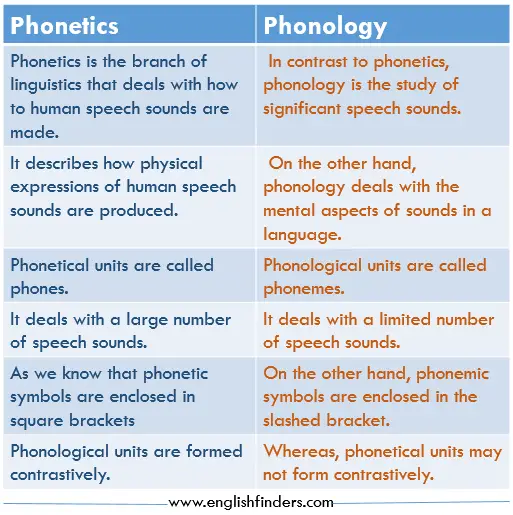What Is Phonetics?
In this lesson, We will analyze the definition of Phonetics and the difference between Phonetics and Phonology. Phonetics is the branch of linguistics, deals with the generation, transmission, and view of speech sounds. In other words, it is the study of how human speech sounds are produced.
On the other hand, Phonology deals with the mental aspects of speech sound in a particular language.
Phonetics deals with the distinctive characteristics of human vocal sounds available in different types of language. It also studies the scientific and psychological aspects of speech sounds.
Further, it observes how human speech organs work to produce particular sounds transmitted through the air from one person to another.
Phoneticians portray speech sounds regarding their place of articulation, for example, tongue, lips, jaws, sense of taste, alveolar edge, and so on. And the manner of articulation, for example, explosion, friction, intermittent closure, etc.
The articulation of a sound is a position of the most extreme tightening inside the vocal tract. The great, more significant part of speech sounds is delivered by moving some piece of the tongue, for example, tip, sharp edge, or center toward some district on the top of the mouth, including the complicated and delicate sense of taste.
Further, articulations include lips and those sounds in which the vocal folds fill in as articulators.
Also, read➡
At a large part of the place of articulation, speech sounds can be delivered with several manners of articulation. Speech sounds produced with a complete tightening of the vocal tract are stops or plosives.
According to the theory of phonetical speech, the sound is produced at a source and passed through the vocal tract. The opening and shutting of the vocal folds make a progression of buildups and rarefactions of air molecules, variations in air pressure, and change active vitality into acoustic vitality.
Difference between Phonetics and Phonology
The significant differences between Phonetics and Phonology are given below in the below table:

| Phonetics | Phonology |
| Phonetics is the branch of linguistics that deals with how to human speech sounds are made. | In contrast to phonetics, phonology is the study of significant speech sounds. |
| It describes how physical expressions of human speech sounds are produced. | On the other hand, phonology deals with the mental aspects of sounds in a language. |
| Phonetical units are called phones. | Phonological units are called phonemes. |
| It deals with a large number of speech sounds. | It deals with a limited number of speech sounds. |
| As we know that phonetic symbols are enclosed in square brackets | On the other hand, phonemic symbols are enclosed in the slashed bracket. |
| Phonological units are formed contrastively. | Whereas phonetical units may not form contrastively. |
To sum up, we may say that Phonetics is the study of how human beings pronounce speech sounds; on the other hand, Phonology is the study of significant speech sounds.
References
- Roach, P. (2000) English Phonetics and Phonology. Cambridge: Cambridge University Press.
- Jones, D. (1976) An outline of English Phonetics. Cambridge: Cambridge University Press.

Azizul Hakim is the founder & CEO of englishfinders.com. He is a passionate writer, English instructor, and content creator. He has completed his graduation and post-graduation in English language and literature.




